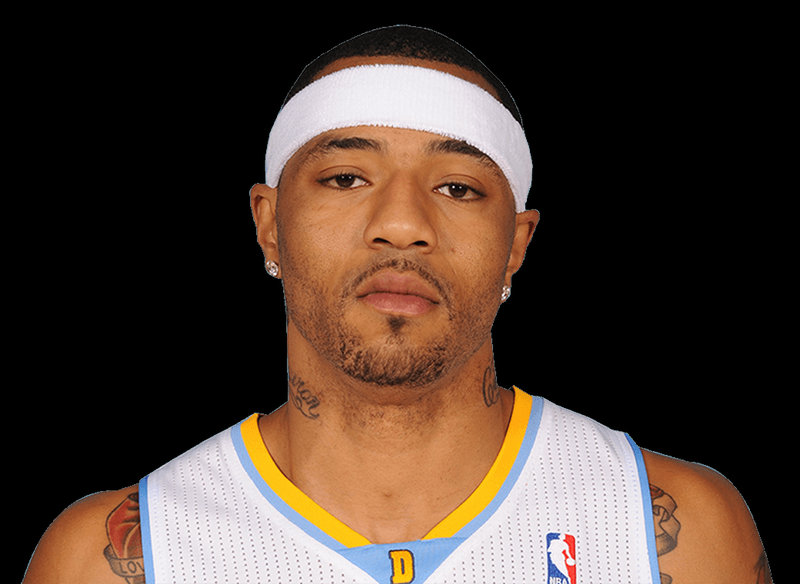Was Kenyon Martin the enforcer every contender craved?
The NBA places great stock in a strong presence on the defensive end, and few players in the league’s history have been as capable, or as intimidating, as Kenyon Martin. Taking the court and patrolling the paint with Martin was not an easy proposition. Physicality and intensity—that old, reliable duo of big-man attributes—made Martin an enforcer’s enforcer for any squad that had designs on playing deep into the danger of the playoffs.
The Role of an Enforcer in Today’s NBA
To thoroughly appreciate the contributions of Kenyon Martin, we must first grasp the role of an enforcer. The enforcer is a kind of player that every successful NBA team has to contain. A player who, if not superhuman, at least has to be tough and resilient in the ways that count: often being the leading scorer of a team (and doing it by not being afraid to get hit, or to hit back), often putting the opponent in a kind of mood that makes him do something stupid (and thus, with a kind of sadistic joy, keeping the opponent’s psyche in a kind of prison).
- Safeguarding coworkers.
- Establishing Physiological Tones During Games
- Countering the plans and actions of adversaries.
Moreover, the impact of an enforcer can be felt far beyond the playing surface. They elevate team morale and instill a sense of fear in the opponents. Kenyon Martin embodied these traits while on teams like the New Jersey Nets and the Denver Nuggets. His stats back these observations up: Martin averaged 12.8 points, 6.4 rebounds, and nearly 1.5 blocks throughout his career. But his influence went beyond numbers; you could see it in the way he played.
Kenyon Martin’s Career Highlights
Kenyon Martin was the first overall pick in the 2000 NBA Draft, and he was a force in the league right away. The early 2000s were marked by Martin and Jason Kidd forming a dynamic duo with the New Jersey Nets. In fact, Martin helped lead the Nets to back-to-back NBA Finals in 2002 and 2003. In his first two playoff appearances, he averaged:
- 18.2 points
- 7.9 boards
- 2.3 blocks
In addition, his focus in pivotal contests set the standard. Championship-seeking teams often covet players who raise their performance level during crunch time. Kenyon Martin was that kind of player.
Statistics Showcase a Tough Defender
As a defender, Martin was not merely a physical force; he was statistically noteworthy. Over his career, he averaged a 106 defensive rating and was selected to the All-Defensive Team in 2001. This laurel underscored his talent for guarding several positions simultaneously and messing up the other team’s offensive game plan.
Also, he was shot-blocking and rebounding like a madman, bringing the Nets even closer to playoff contention. In 2001, he was dominant in that area, averaging 9.5 rebounds and 1.5 blocks during the playoffs. And in 2004, there seemed to be no more apparent roadblocks on the way to the Nets being a borderline contender; they had two All-Stars, and one of them was an enforcer. And that enforcer was making offensive threats in the league think twice about trying to score.
Was Kenyon Martin the enforcer every contender craved?
Was Kenyon Martin the enforcer every contender wanted? For a lot of teams, the answer is an overwhelming yes. His ability to change the tenor of a game offensively and defensively made him a dependable player. And teams like the Los Angeles Clippers received the added bonus of his experience and tenacity. Even late in his career, Martin offered a veteran presence that many hopeful contenders coveted.
Moreover, his competitive nature and eagerness to take on undesirable tasks struck a chord with both comrades and supporters. The job of enforcer, more often than not, transforms into carrying over intangible qualities that put a team in a good position to win when stakes are maximally raised. Still, the enforcer’s contribution is all the more interesting because it cannot be fully captured in statistical form. Visualization helps to some degree, but even what the eye can see is only a part of the apparatus.
The Intangible Qualities of Being an Enforcer
It’s vital to distinguish between measurable performance and the emotional and psychological aspects of enforcement. Kenyon Martin’s brand of leadership, on and off the court, took any game and turned it into a battle, demanding from his teammates a heightened sense of urgency and, mostly, a very elevated and robust performance.
As a player, his relentless hustle motivated those around him. Toughness, we learned, could be contagious. He also often stood up for his teammates in very heated and intense moments. He was a protector.
This protection is absolutely essential because it permits skill players to concentrate on their games and not stress over physical threats. Teams with a strong enforcer just perform better under pressure. They know that a player like Martin has their backs, which can lead to better overall team performances. And so, the advantage gained through having such a player is in no way negligible.
Conclusion: The Legacy of Kenyon Martin
This discussion appears to be heading to a conclusion. It sure seems that Kenyon Martin was really the enforcer every NBA contender sought. And it wasn’t just because of what he did on the court. Contending teams seem to have gotten a boost from Martin’s defensive skills and intensity, plus maybe a bit of motivation that any good enforcer gives his teammates. And with the way Martin intimidated opponents, if you had to pick a player to go in the Hall of Fame as the best enforcer in NBA history, he’d be right up there.
Explore More on us
Discover insightful blogs on our Blogging Space, check our SoloStat Score Explanation, and learn more about NBA All-Defensive Team.


